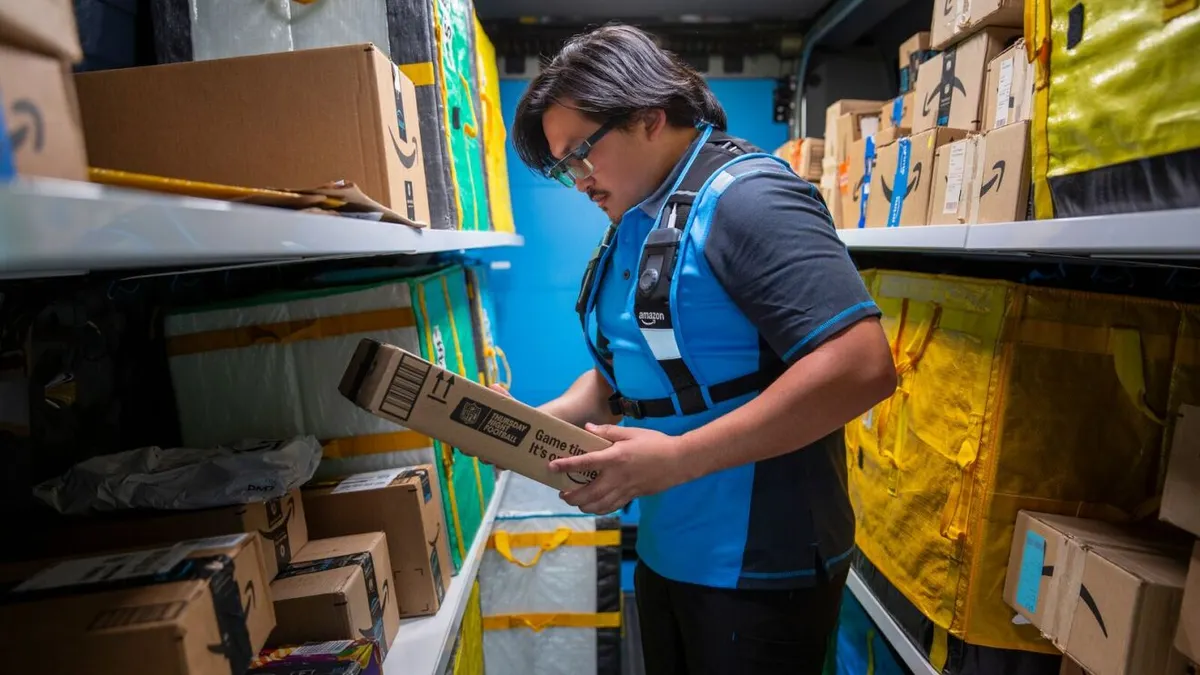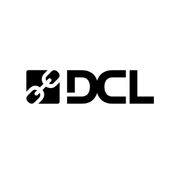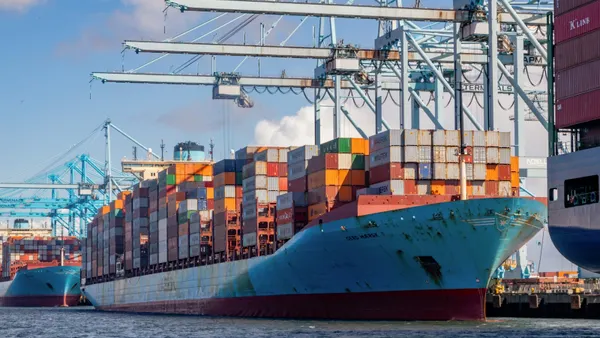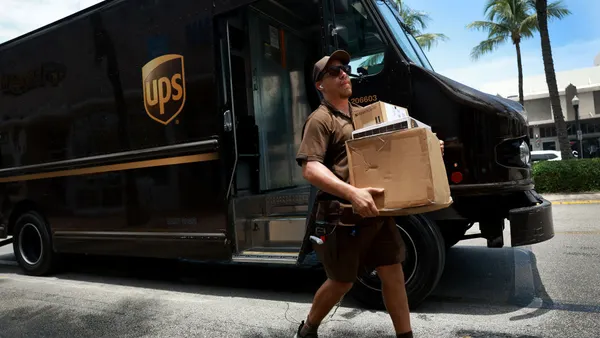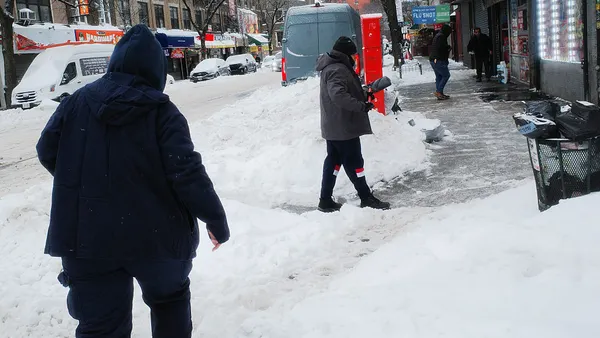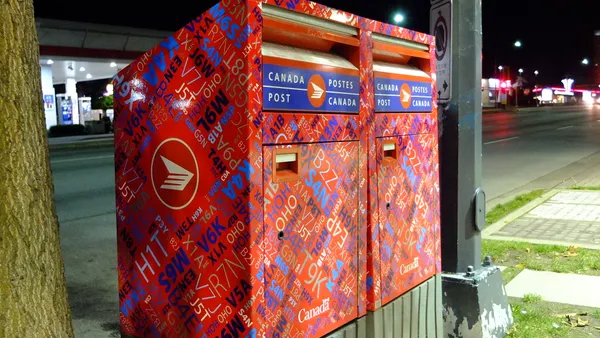Amazon is testing new technologies ranging from a multiarmed robotics system to smart glasses for delivery drivers, the company announced on Wednesday.
The innovations aim to reduce repetitive tasks, boost productivity and accelerate delivery speeds, according to the e-commerce giant. They also build on other technology-focused advances from Amazon this year, including additional fulfillment center robots and better demand forecasting and delivery mapping.
Here's a deeper look at Blue Jay, Project Eluna and Amazon's smart delivery glasses, three of the company's latest innovations supporting its fulfillment network.
Blue Jay
Blue Jay is a system that coordinates multiple robotic arms to perform several item-handling tasks simultaneously, reducing repetitive reaching and lifting by employees, according to Amazon.
The system can handle the work of what previously would be three separate robotic stations into a single workspace for picking, stowing and consolidating items, which helps the company save on physical warehouse space. Blue Jay moved from concept to production in just over a year, a condensed timeline compared to the three-plus years needed for other robotic systems like Robin, Cardinal and Sparrow.
"The reason: Years of trial-and-error were condensed into months of development thanks to advancements in AI," Amazon said. "Our engineers were able to iterate on dozens of prototypes for Blue Jay with the use of digital twins."
Amazon is testing Blue Jay at a South Carolina facility, where the system is already able to handle about 75% of items stored. Over time, Amazon expects the technology to serve a key role in its same-day fulfillment and delivery sites.
Project Eluna
Project Eluna is an agentic artificial intelligence model that helps Amazon operations managers make more informed decisions on how to keep the fulfillment process running smoothly, the company said.
Amazon described the system as an extra teammate "designed to act with a degree of autonomy, reasoning through complex operational situations and recommending actions to operators." To do this, Project Eluna factors in historical and real-time building data to anticipate potential fulfillment challenges and help managers keep facilities on track, the company said.
"Operators can ask questions like, 'Where should we shift people to avoid a bottleneck?' and receive clear, data-backed recommendations," Amazon said. "The goal: less putting out fires, more foresight."
Project Eluna will be piloted at a Tennessee fulfillment center to assist operators during the holiday shipping rush, focusing initially on optimizing sortation, according to Amazon. Eventually, the system will support preventive safety measures, such as planning ergonomic employee rotations and improving maintenance schedules.
Smart delivery glasses
Amazon's in-development smart delivery glasses aim to help couriers focus on their surroundings, more easily identify hazards and navigate efficiently to customers' doorsteps, the company said.
The wearable system displays real-time navigation and instructions for delivery drivers, providing a hands-free process that reduces reliance on their phones. The glasses help drivers locate and scan packages and follow turn-by-turn walking directions to the destination, which can be handy in navigating complex environments like apartment buildings, per Amazon.
Hundreds of delivery drivers tested early versions of the glasses, with their feedback shaping the next iteration of the system, the company said.
"We anticipate future versions of the glasses will provide real-time defect detection, where the glasses can help notify drivers if they’ve mistakenly dropped a package at a customer doorstep that does not correspond with the house or apartment number on the package, detect hazards like low light and adjust the lenses, notify that there’s a pet in the yard, and more," according to Amazon.



